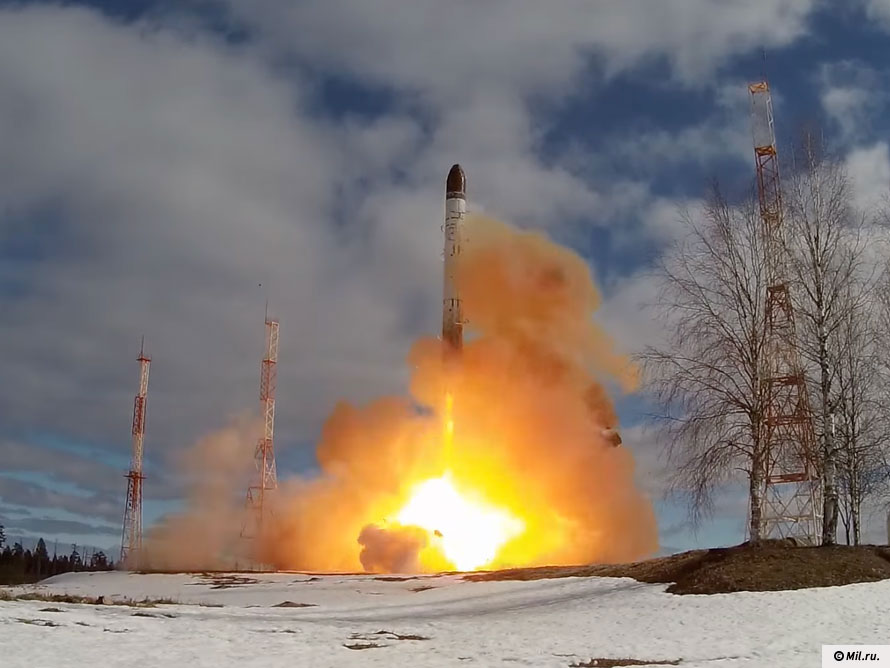Should all nukes be destroyed? Russia has wielded its nuclear arsenal as a threat once again, with latest reports suggesting that Putin may intend to launch nuclear missiles into space.
Alarm rises over Russian nuclear space threat
 Star Wars: Reports that Russia is pursuing a nuclear space-based weapon have caused fears in Washington.
Star Wars: Reports that Russia is pursuing a nuclear space-based weapon have caused fears in Washington. Glossary
D-day - The largest amphibious invasion in the history of war. On 6 June 1944, the Allies landed 150,000 troops on five beaches in Normandy, France.
Adversary - Enemy or opponent.
Stratosphere - A layer of the atmosphere which extends for 31 miles above the Earth’s surface.
Vaporised - Turned into vapour.
Apocalypse - A Christian name for the end of the world. Descended from a Greek word meaning uncover, it was used to describe the Biblical book of Revelation.
Dystopian - Relating to an imagined society where there is great suffering or injustice.
allies - An ally is someone that aligns with and supports a cause with another individual or group of people.
Celestial - Relating to the sky or space.
Warheads - The device containing nuclear materials, fitted onto a missile, torpedo or bomb.
Arsenals - Collections of weapons.
Paradoxically - In an apparently nonsensical or contradictory way.
